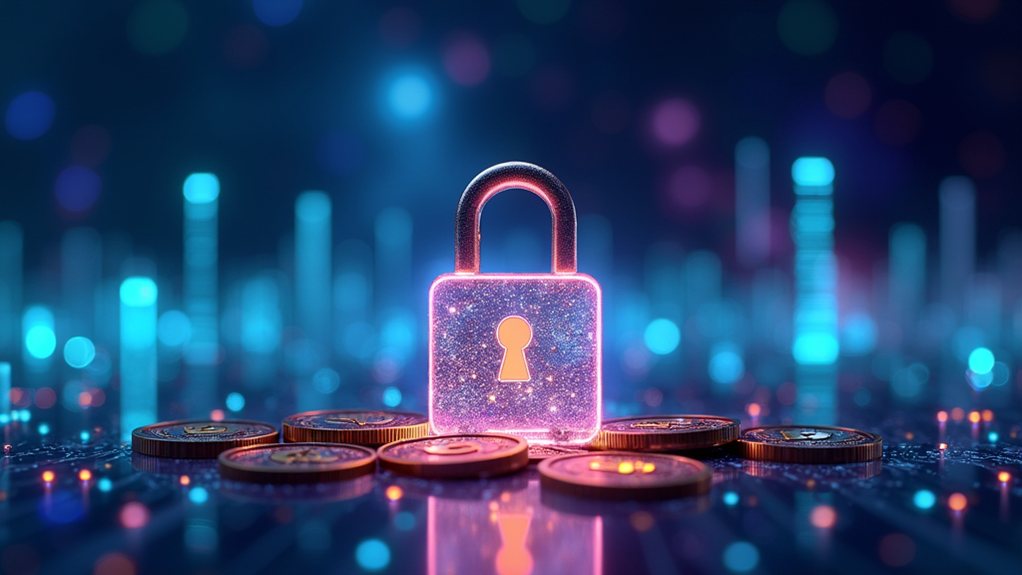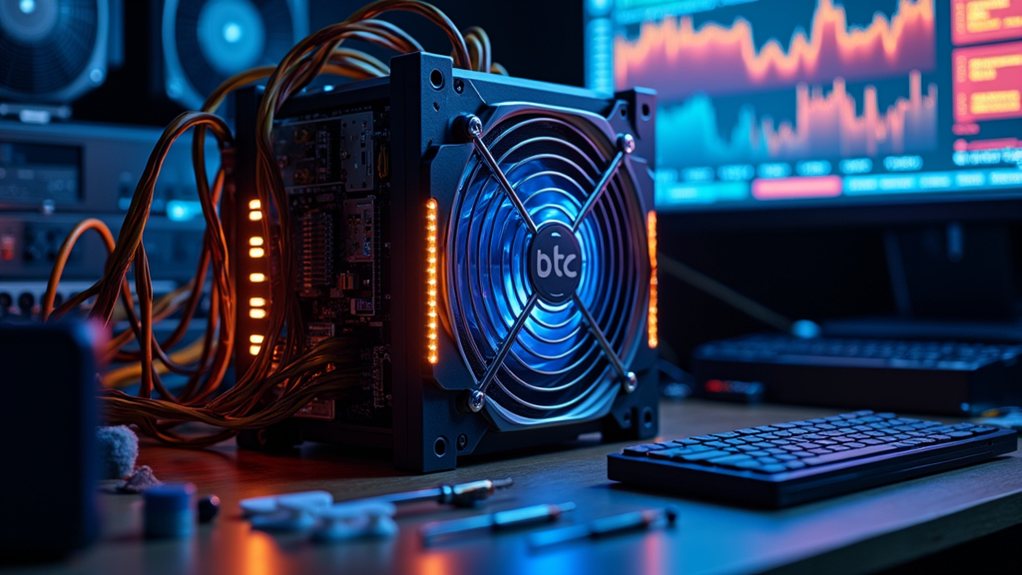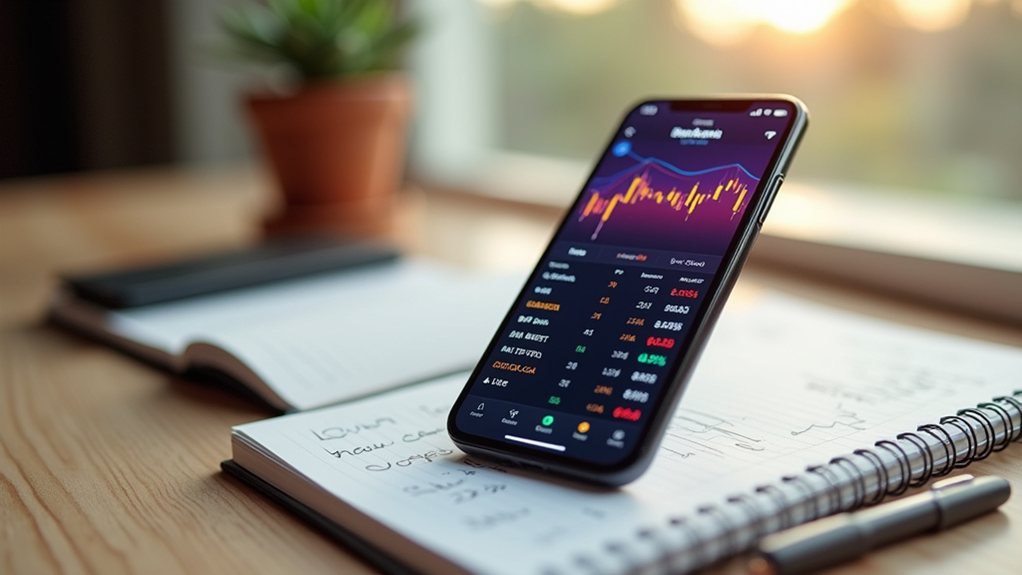DeFi, or decentralized finance, reimagines money without banks or middlemen. Built on blockchains like Ethereum, it uses smart contracts to automate financial services 24/7. Users maintain control of their assets while enjoying permissionless access, reduced costs, and faster settlements. Despite benefits like financial inclusion and innovation, DeFi faces challenges including hacking risks, regulatory uncertainty, and price volatility. The revolution continues to expand beyond traditional financial boundaries.

The revolution has arrived, and it's digital. Decentralized finance, or DeFi for those in the know, isn't just another tech buzzword. It's a complete reimagining of how money works. Built on blockchain technology, DeFi creates financial systems that don't need banks, brokers, or any middlemen whatsoever. No permission required. No one to tell you no.
DeFi operates on public blockchains like Ethereum, using smart contracts to automate financial services. These contracts execute exactly as programmed. No human intervention. No "the check is in the mail" excuses. The code is law, and it runs 24/7/365. Transparent, immutable, and open for anyone to inspect.
Code doesn't negotiate, sleep, or make excuses. It simply executes, transparent and unstoppable, 24/7/365.
What makes DeFi different? You keep control of your money. Always. Traditional banks hold your cash, invest it, profit from it, and sometimes lose it. In DeFi, you maintain non-custodial control. Your assets, your rules. The system is permissionless—anyone with an internet connection can participate, regardless of location, credit score, or social status. Banking the unbanked isn't just a slogan here. This creates the potential for open financial markets that are truly free and fair for everyone.
The ecosystem is surprisingly diverse. Decentralized exchanges like Uniswap let users swap tokens directly—no centralized exchange needed. Lending platforms such as Aave and Compound allow borrowing and lending without credit checks. MakerDAO creates stablecoins pegged to real-world assets. Synthetix offers synthetic versions of stocks, commodities, and currencies. All these pieces work together through composability, the LEGO-like ability to combine protocols. The interoperable nature of these protocols enables developers to build new solutions by integrating existing applications.
The benefits are real. Global access means financial inclusion for billions previously excluded. Transaction costs? Slashed. Settlement times? Minutes, not days. Innovation happens at warp speed because anyone can build on existing protocols. And let's not forget the yields—sometimes absurdly high compared to traditional finance's pitiful interest rates. These higher yields are a key reason many people are exploring DeFi as an alternative to traditional banking services.
But it's not all crypto-utopia. Smart contracts get hacked. Millions disappear overnight. Regulators circle like sharks, unsure whether to bite or swim along. Price volatility can turn millionaires into thousandaires faster than you can say "rug pull." And the learning curve? Steep doesn't begin to describe it.
Still, the future looks promising. Total value locked in DeFi protocols continues to climb despite occasional market tantrums. Traditional finance is taking notice, with banks cautiously dipping their toes in the DeFi waters. Cross-chain solutions are expanding the ecosystem beyond Ethereum's congested highways. User interfaces are slowly becoming less intimidating.
The financial revolution won't be televised—it'll be tokenized, decentralized, and encrypted. DeFi isn't perfect. It's messy, experimental, and sometimes dangerous. But so was democracy once. So was the internet. The genie is out of the bottle, and traditional finance will never be the same.
Frequently Asked Questions
How Secure Are Defi Platforms Compared to Traditional Banking Systems?
DeFi platforms face significant security challenges. They've lost billions to hacks while offering zero deposit insurance.
Smart contract bugs? Major vulnerability. Traditional banks aren't perfect either—they lose plenty to fraud.
But they've got FDIC insurance, regulatory oversight, and established security protocols. DeFi puts all responsibility on users.
One coding error and poof—money gone. Banks might be boring, but they're predictably secure.
What Tax Implications Should I Consider When Using Defi Services?
DeFi users face a tax minefield. No centralized reporting means self-tracking is essential.
Every swap, yield farm, or liquidity provision potentially triggers taxable events. Income from staking? Taxed at ordinary rates. Trading tokens? Capital gains apply. And those governance token airdrops? Yep, taxable too.
The IRS isn't sleeping on this. They're ramping up enforcement with new reporting requirements coming in 2027.
Record-keeping is a nightmare, but necessary. Tax software helps, somewhat.
Can Defi Products Be Regulated by Government Authorities?
Yes, DeFi products can be regulated, though it's complicated.
Governments are already targeting the obvious points: on/off ramps where crypto meets traditional finance.
Full regulation? That's trickier. The decentralized nature makes enforcement difficult.
No central authority to punish. No headquarters to raid. Some projects purposely structure themselves to evade oversight.
Regulators are playing catch-up, but they're getting smarter.
International coordination will be key.
Which Blockchain Provides the Best Infrastructure for Defi Applications?
Ethereum dominates DeFi infrastructure despite its flaws. The $40B+ locked speaks volumes.
Sure, gas fees can be ridiculous, but developers love it – most established ecosystem, battle-tested security, and unmatched composability.
Solana offers speed and low fees, while BSC provides cheaper alternatives. Polkadot's cross-chain capabilities show promise.
Each blockchain has trade-offs. No perfect solution exists. Ethereum's first-mover advantage just keeps paying dividends.
How Can I Recover Funds if I Make a Mistake in Defi Transactions?
Recovery options depend on the mistake.
Sent to wrong address? Check the blockchain explorer and contact the recipient.
Transaction pending? Try canceling it.
Already confirmed? Tough luck.
Crypto forensics services exist for complex cases. Some exchanges offer recovery tools for supported tokens.
Prevention beats recovery every time.
Hardware wallets, multi-factor authentication, and test transactions would've saved a headache.
The blockchain is permanent. No take-backs.








